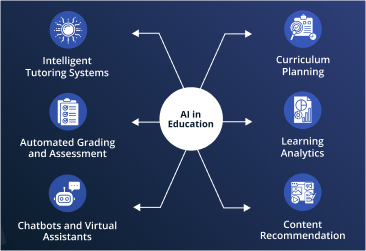Qatar’s Smart Education Policy is entering a revolutionary phase, aiming for complete Artificial Intelligence (AI) integration in its education sector by the year 2030. The ambitious national goal reflects the country’s long-term vision to transform learning and teaching using smart technologies. Through this bold move, Qatar is positioning itself as a global leader in digital education.
With the increasing role of AI in global education systems, Qatar’s Smart Education Policy is seen as both timely and futuristic. The government has designed this policy to improve learning outcomes, reduce the educational gap, and personalize the student learning journey through AI-powered tools.
The Vision: AI at the Core of Learning

Qatar’s Ministry of Education and Higher Education has confirmed that the new education policy aligns with Qatar National Vision 2030. It aims to enhance human capital development by ensuring students receive a modern, high-tech education that matches global standards. At the heart of this transformation is AI technology, which is expected to be fully implemented across all educational institutions in Qatar by 2030.
The policy focuses on several key areas:
- AI-powered personalized learning platforms
- Real-time student performance analytics
- Smart classrooms with intelligent systems
- AI integration into teacher training programs
- Digital literacy for all students
This smart shift will also support students with different learning abilities, offering them customized solutions based on their individual needs.
Early Implementation and Pilot Programs
Qatar has already launched several pilot projects to test the effectiveness of AI tools in education. In collaboration with leading technology providers, the Ministry has deployed AI-based assessment systems in selected schools. These systems evaluate student performance, track learning behavior, and provide automated feedback to teachers and parents.
The early response from teachers and students has been positive. Many reported increased student engagement, better performance tracking, and more effective classroom time management.
To further prepare the ecosystem, the government is also upgrading school infrastructures. Smart boards, interactive software, and cloud-based learning platforms are now being introduced in both public and private institutions.
Strong International Collaboration
The success of Qatar’s Smart Education Policy heavily relies on global cooperation. The country has signed multiple memorandums of understanding (MOUs) with international educational technology companies and universities. These partnerships focus on research, training, and AI development.
For example, Qatar Foundation is working closely with several top global AI research centers to adapt cutting-edge technologies to the needs of Qatari students. This also opens doors for future knowledge sharing and joint innovation projects.
Challenges in the Path of Integration
Despite the positive momentum, several challenges could slow down the full integration of AI by 2030. These include:
- High costs of AI infrastructure
- Teacher resistance to technological changes
- Cybersecurity risks
- Ethical concerns regarding student data privacy
The government has acknowledged these issues and is working to address them. New cybersecurity policies and ethical AI usage guidelines are being developed in consultation with global experts. At the same time, nationwide training programs are being introduced to help teachers adjust to the new tools and systems.
Education for the Future Workforce
One of the major goals of Qatar’s Smart Education Policy is to prepare students for a future driven by digital and AI technologies. As automation increases in industries, the skills required by employers are changing rapidly. By integrating AI into classrooms, Qatar aims to equip students with:
- Critical thinking and problem-solving abilities
- Technical knowledge of AI and data analytics
- Creative and adaptive learning skills
- Digital communication and collaboration proficiency
This education policy is seen as a way to bridge the current skills gap and create a future-ready workforce in Qatar.
Support from the Public and Private Sectors
Both public and private institutions in Qatar have shown strong support for the smart education movement. Private schools are voluntarily adopting AI-based tools to improve learning outcomes, while universities are redesigning curriculums to include AI literacy from an early stage.
Additionally, tech start-ups and innovation hubs in Doha are being encouraged to develop educational AI solutions tailored for the local context. Government funding and grants are being offered to fuel this ecosystem.
Looking Ahead: What Will Education in Qatar Look Like by 2030?

If all plans proceed smoothly, by 2030, a typical classroom in Qatar will be vastly different from what we see today. Students will learn using personalized AI tutors, and teachers will receive instant feedback on classroom performance. Education will become more flexible, with online and hybrid learning models becoming standard.
Teachers will not be replaced by AI, but their roles will evolve. They will act more as facilitators, mentors, and coaches while AI handles administrative tasks and routine assessments.
The education system will also be more inclusive. AI-driven platforms can support students with disabilities or those who need learning in multiple languages, ensuring that no child is left behind.
Final Thoughts
Qatar’s Smart Education Policy is not just a tech upgrade; it’s a national investment in the future. By aiming for full AI integration by 2030, Qatar is making a statement to the world: education is the foundation of progress, and innovation is the key to unlocking it.
While the journey is full of challenges, Qatar’s commitment to this vision and the steps it has already taken show a serious intent to lead the future of education.
Also Read – Critical Gaps in Rural Education in Qatar by 2025: 7 Alarming Facts



